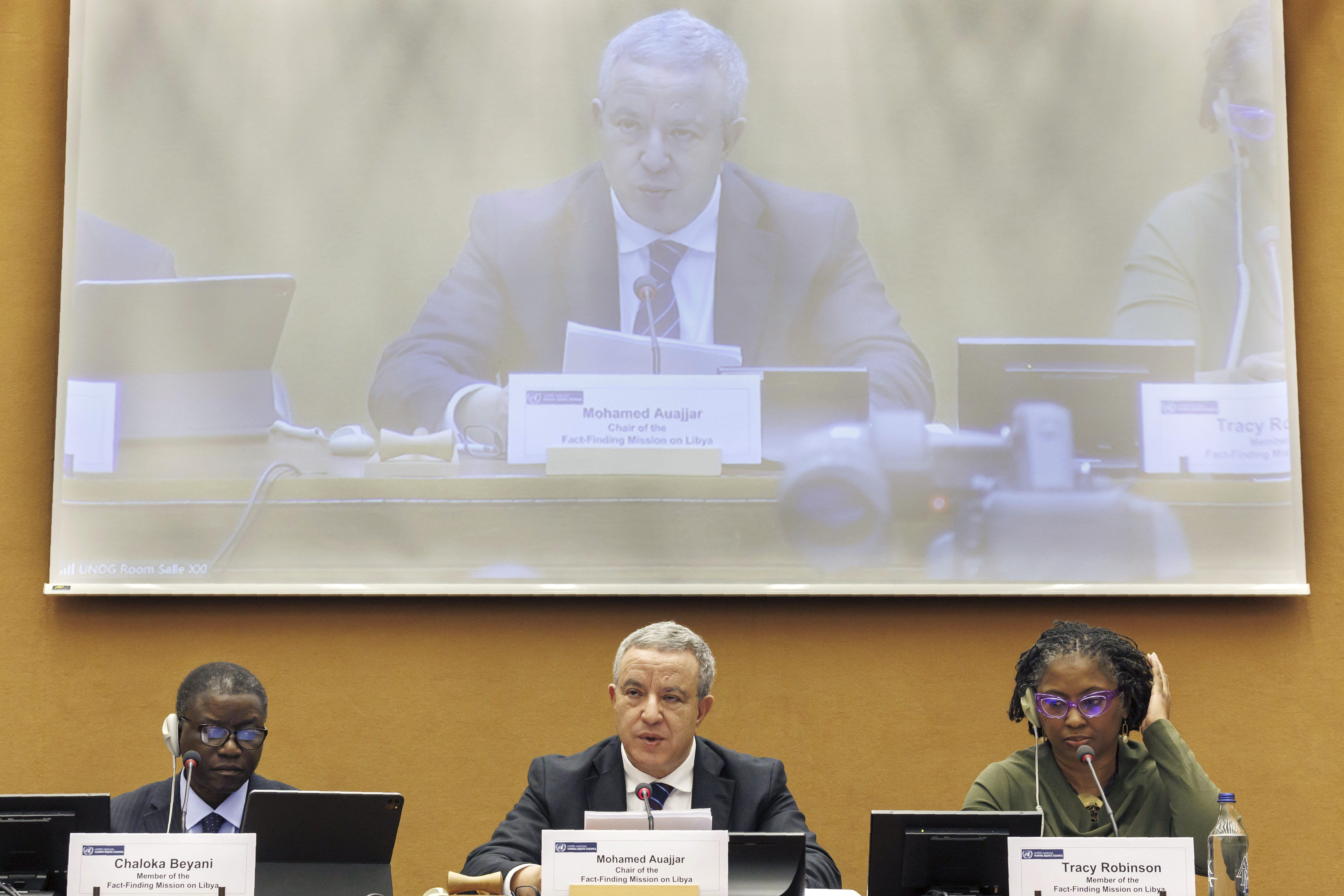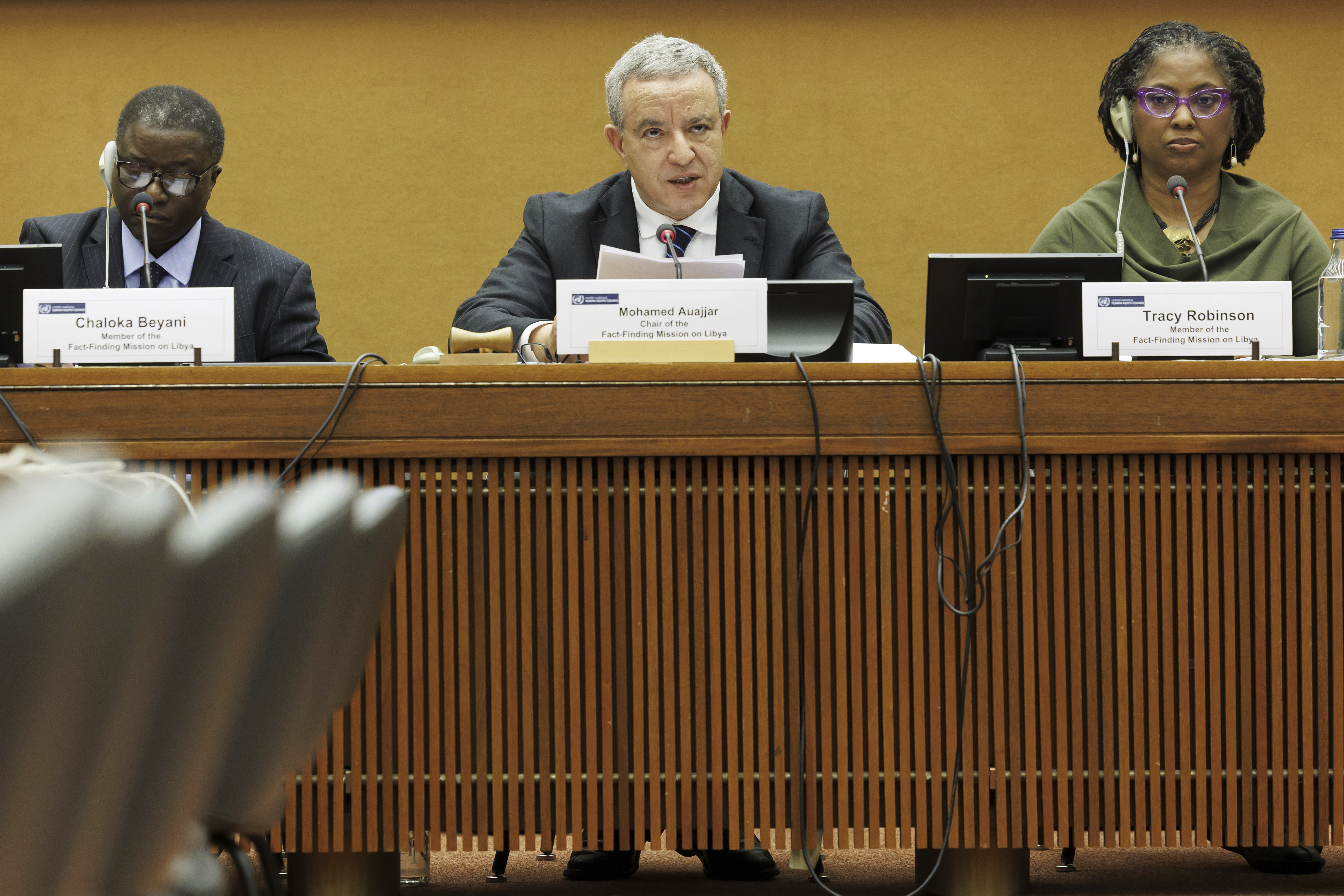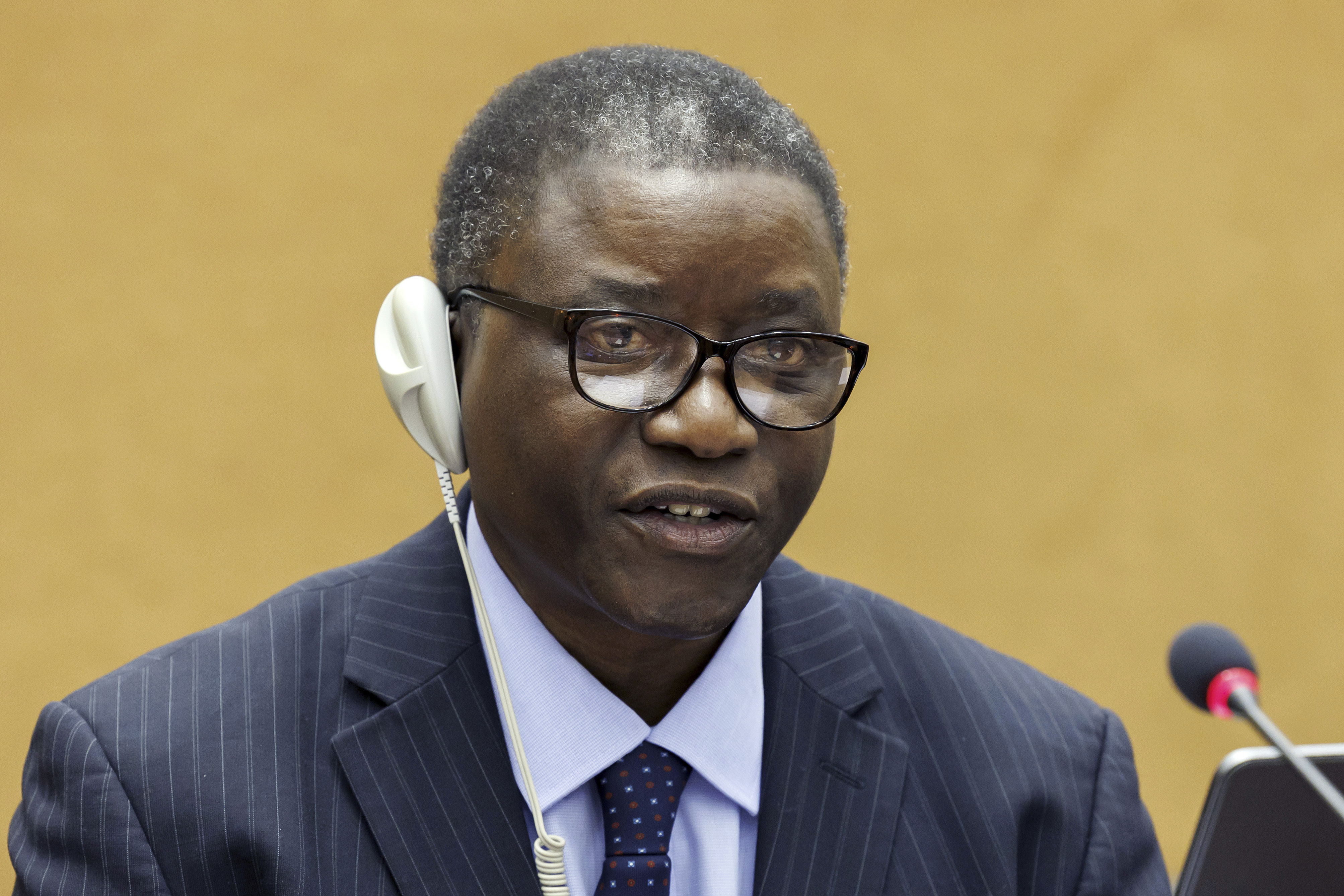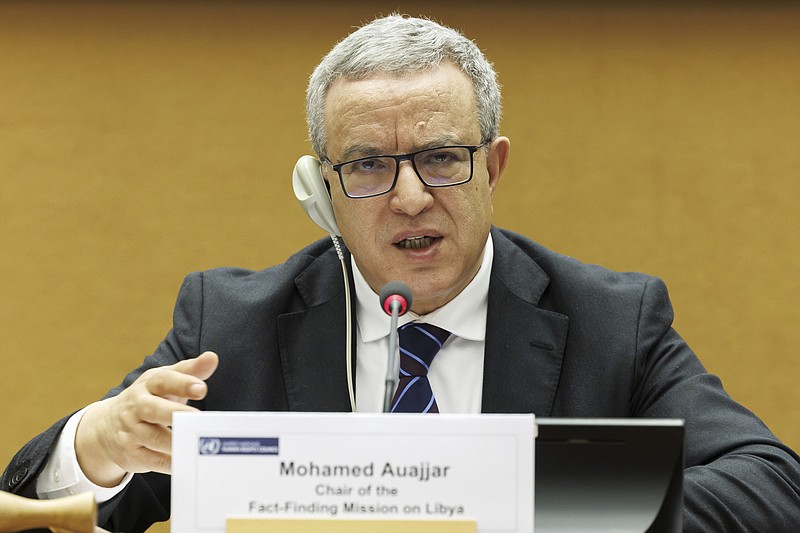GENEVA -- U.N.-backed human rights experts said Monday there is evidence crimes against humanity have been committed against Libyans and migrants in chaos-stricken Libya, including women being forced into sexual slavery.
The investigators commissioned by the U.N.-backed Human Rights Council also faulted the European Union for sending support to Libyan forces that they say contributed to crimes against migrants and Libyans, and called on EU authorities to review their policies toward Libya.
The findings come in an extensive new report, based on interviews with hundreds of people, including migrants and witnesses, that wraps up a fact-finding mission created nearly three years ago to investigate rights violations and abuses in the North African country. The mission shared its findings with the International Criminal Court.
Oil-rich but largely lawless, Libya has in recent years emerged as the dominant transit point for migrants seeking a better quality of life in Europe. Activists have long decried horrible conditions faced by migrants who were trafficked and smuggled across the Mediterranean.
Spokespersons for the government in the capital of Tripoli, which works in western Libya, and the forces of a powerful commander that controls eastern and southern Libya, were not immediately available for comment.
The investigators found "reasonable grounds to believe that crimes against humanity were committed against Libyans and migrants throughout Libya," said Mohamed Auajjar, the head of the fact-finding mission. Speaking in Arabic through a translator at a news conference in Geneva, he said his team unearthed "numerous cases of arbitrary detention, murder, torture, rape, enslavement, sexual enslavement and enforced disappearance."
The Libyan coast guard, which has received training and equipment from the EU, has worked "in close coordination" with trafficking networks in Libya, the report said. The "wide-scale exploitation of vulnerable, irregular migrants" churned up "significant revenue" that spurred continued rights violations, it said.
"The support given by the EU to the Libyan coast guard in terms of pull-backs, pushbacks [and] interceptions led to violations of certain human rights," said investigator Chaloka Beyani. "You can't push back people to areas that are unsafe, and the Libyan waters are unsafe for the embarkation of migrants."
He said the European bloc and its member states weren't found to be responsible for war crimes, but "the support given has aided and abetted the commission of the crimes."
European Commission spokesman Peter Stano told reporters Monday that the EU did not fund the Libyan coast guard "nor any other entity in Libya," adding that the EU assistance was meant to "improve their performance."
"We are providing assistance to help them improve their performance when it comes to search and rescue, be it with vessels, be it with equipment, or previously training with a focus exactly on human rights," he said.
The investigators documented enslavement, rape -- "at times at gunpoint" -- and other sexual abuse against women and men, including by guards working both for state authorities and trafficking groups.
Investigators cited evidence of crimes against humanity in prisons in parts of eastern Libya controlled by forces of commander Khalifa Hifter, as well as in areas controlled by an umbrella group of militias led by Abdel-Ghani al-Kikli, an infamous warlord known as "Gheniwa" in the capital, Tripoli.
Information for this article was contributed by Lorne Cook of The Associated Press.
 Mohamed Auajjar, center, Chairperson of the Independent Fact-Finding Mission on Libya, Chaloka Beyani, left, and Tracy Robinson, members of the Fact-Finding Mission, speak to the media ahead of presenting the findings of the final report, at the 52nd session of the Human Rights Council during a press conference, at the European headquarters of the United Nations in Geneva, Switzerland, Monday, March 27, 2023. (Salvatore Di Nolfi/Keystone via AP)
Mohamed Auajjar, center, Chairperson of the Independent Fact-Finding Mission on Libya, Chaloka Beyani, left, and Tracy Robinson, members of the Fact-Finding Mission, speak to the media ahead of presenting the findings of the final report, at the 52nd session of the Human Rights Council during a press conference, at the European headquarters of the United Nations in Geneva, Switzerland, Monday, March 27, 2023. (Salvatore Di Nolfi/Keystone via AP) Mohamed Auajjar, center, Chairperson of the Independent Fact-Finding Mission on Libya, Chaloka Beyani, left, and Tracy Robinson, members of the Fact-Finding Mission, speak to the media ahead of presenting the findings of the final report, at the 52nd session of the Human Rights Council during a press conference, at the European headquarters of the United Nations in Geneva, Switzerland, Monday, March 27, 2023. (Salvatore Di Nolfi/Keystone via AP)
Mohamed Auajjar, center, Chairperson of the Independent Fact-Finding Mission on Libya, Chaloka Beyani, left, and Tracy Robinson, members of the Fact-Finding Mission, speak to the media ahead of presenting the findings of the final report, at the 52nd session of the Human Rights Council during a press conference, at the European headquarters of the United Nations in Geneva, Switzerland, Monday, March 27, 2023. (Salvatore Di Nolfi/Keystone via AP) Chaloka Beyani, member of the Fact-Finding Mission, speaks to the media ahead of presenting the findings of the final report, at the 52nd session of the Human Rights Council during a press conference, at the European headquarters of the United Nations in Geneva, Switzerland, Monday, March 27, 2023. (Salvatore Di Nolfi/Keystone via AP)
Chaloka Beyani, member of the Fact-Finding Mission, speaks to the media ahead of presenting the findings of the final report, at the 52nd session of the Human Rights Council during a press conference, at the European headquarters of the United Nations in Geneva, Switzerland, Monday, March 27, 2023. (Salvatore Di Nolfi/Keystone via AP)